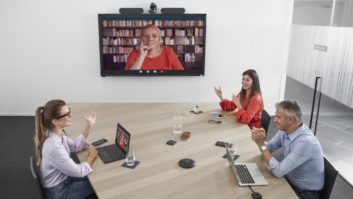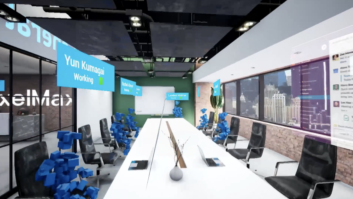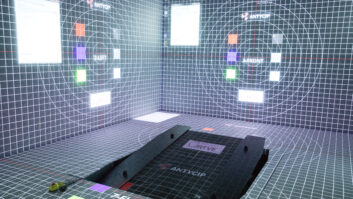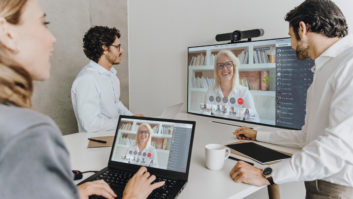 The last year has taken almost everyone by surprise. Impacts on businesses have been unprecedented and catastrophic for many. One thing that finally became clear to everyone is that video is an extremely important part of the workplace, something that can no longer be ignored.
The last year has taken almost everyone by surprise. Impacts on businesses have been unprecedented and catastrophic for many. One thing that finally became clear to everyone is that video is an extremely important part of the workplace, something that can no longer be ignored.
Unfortunately, the move to working from home was only the first step towards new ways of working, and deploying a video tool for the entire business is not the end of the job!
Now that AV is in the front of everyone’s minds, it’s important to get to grips with what AV actually is and how it is the key to driving businesses and organisations forward. No longer is AV just a big TV; and VC is not just an annoying interruption to your day.
The move to a grown up way of working is great: organisations can now see that workers can be trusted and productive working from different locations. The next challenge is how do we move towards the next working revolution?
Planning and implementation
Many have been waiting to see what happens, but if we have learned anything from Covid is that to wait for things to go wrong is not the right approach – you need to plan and implement now, assess what you have, where you want to go and what you need to change in order to get there.
When organisations start to move back towards having some teams in the office, they will need to look at what tasks people will be doing there, the reason why they are coming in, and whether the tools and spaces that are in place are still appropriate.
Unfortunately, many organisations don’t actually understand AV and VC. They have been told by major companies that AV is in fact just IT, and this incorrect message is very damaging: many have believed it and so do not have the correct resources in place to understand the challenges of AV and VC.
As workplace technology consultants we see the challenges ahead, and have the processes in place to help organisations succeed. Consultants are not focused on selling hardware; we focus on our clients’ success. Quality independent consultancy is more important now than ever.
Many organisations don’t understand what AV actually is! Many don’t have a strategy, a budget or defined support processes. Lots only think of upgrading if they move buildings. Fewer still have proper needs assessment or testing and proof of concept processes as they do for IT. Most go to the companies who sell them hardware for advice, rather than independent consultants who take an impartial and independent view. Essentially, organisations need to take their meeting processes seriously, understand them and put the resources in place to deliver.
An afterthought
As AV is not a constant thread running through an organisation like IT is, it is often an afterthought. No time is allowed for the proper assessment of needs and impacts of tech on spaces and on users working process, or to run PoC processes to check findings – and no one ever includes a proper change management process.
Historically, construction projects are the ultimate blocker to technology innovation. They are run to a timeline and invariably AV consultants are brought on late in the process after other trades are appointed. Many in construction don’t understand AV or the risks it presents to a project completion. Many scope of works issued for appointment of consultants focus on hardware design rather than proper assessment of the needs of the business. 99 times out of a 100 these scopes request a consultant to provide a performance specification, an approach which is no longer an appropriate way to specify technology. You wouldn’t let your builder tell you what laptop to use and give it to you untested, so why let this happen with your AV and VC?
Broader challenges
The broader AV industry doesn’t always help itself and often does not actually understand the challenges either. Many think in hardware sales only, and struggle to show the productivity increase and value that the hardware brings. Those that sell and install hardware say they offer consultancy when they only provide design but give it away for free to secure a sale, removing any value it might have had. Many think showing how easy it is to use a product is a proof of concept, and that training is a change management process.
In order for the meeting room technology providers to rise to the challenge of being placed front and centre, the industry must grow up, understand its own importance and not shy away from telling others and helping see the need to invest in the right services – not just the hardware. But, most importantly, the industry needs to work together to drive the development of quality, productive, supported and connected workplaces of the future.







